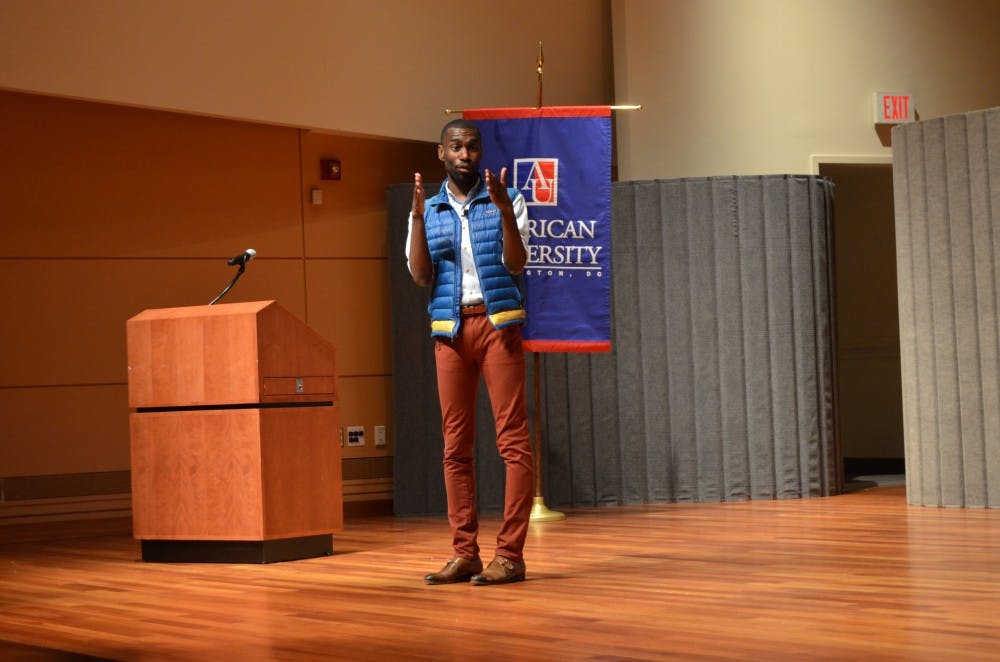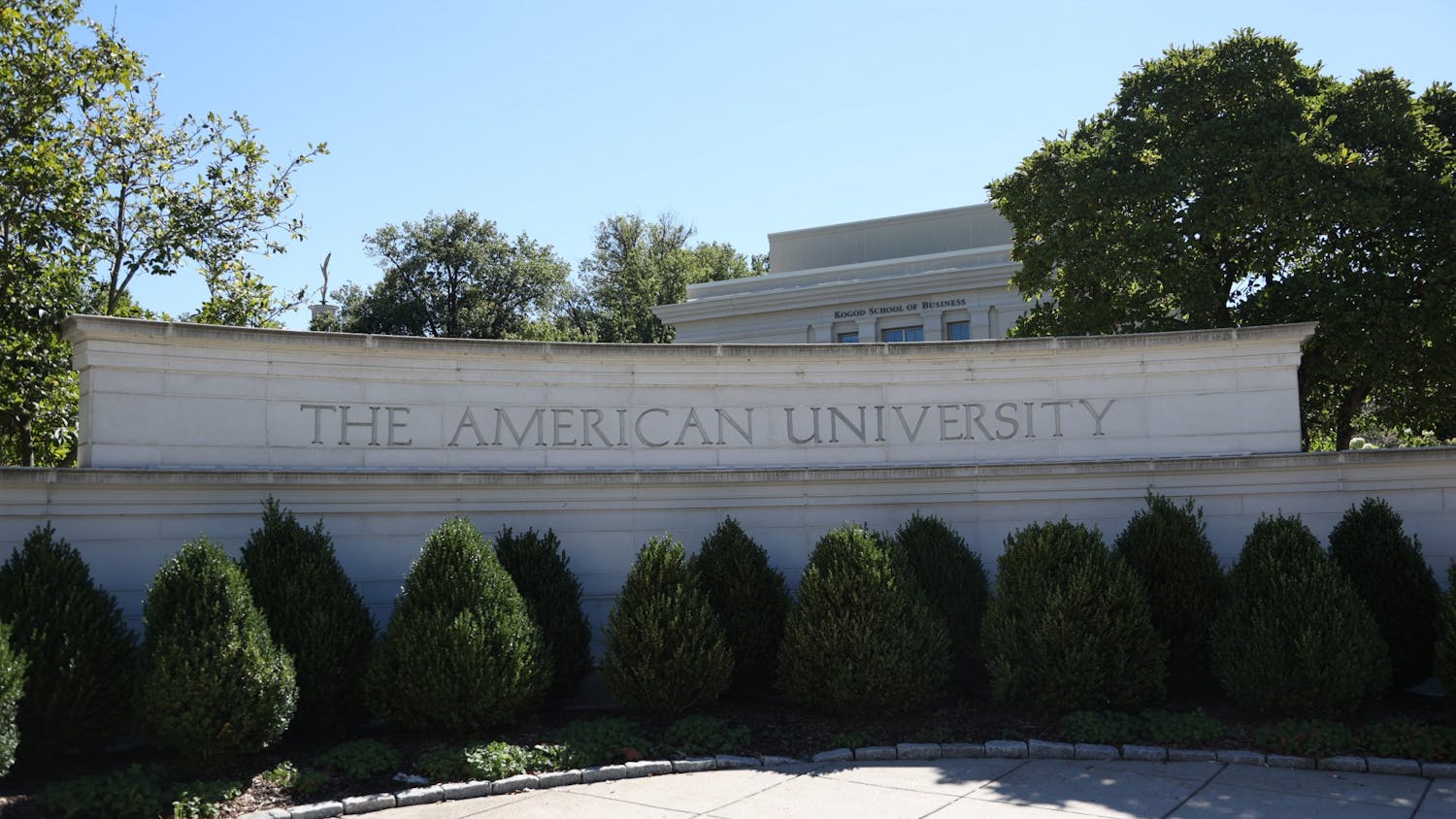Wearing his signature blue Patagonia vest, activist and educator DeRay Mckesson arrived at AU on Thursday night to share his views on educational policies like school choice as well as answer questions about his experiences as an organizer.
One of the best known faces of the Black Lives Matter movement, Mckesson was invited by the School of Education to speak in Katzen about how education intersects with social change. Mckesson has served as a top human resources administrator for public school districts in Minneapolis and Baltimore, where he is currently the interim chief human capital officer.
During his remarks, Mckesson argued that Trump’s education secretary, Betsy DeVos, has effectively “flattened” the conversation about school choice, vouchers and charter schools. Voucher programs, which have proven controversial, give families taxpayer dollars to pay for private and religious schools instead of going to their assigned public school.
“All of a sudden, every [term] became synonymous with everything else,” Mckesson said. “So school choice became synonymous with vouchers, vouchers became synonymous with charter schools, and these are fundamentally different things.”
While Mckesson embraced the ideas of school choice as allowing students to apply and choose the best school for them within their district, he expressed skepticism about the effectiveness of vouchers.
“What happens when the voucher amount is so low that it means that poor black or brown kids can only go to the worst of those schools [available to them]?” Mckesson asked. “That isn’t equity...Equity is about everybody getting what they deserve, and equality is about everybody getting the same thing. In education, the fight is always about equity.”
Later in the event, Mckesson also discussed the lessons he learned during his run for Baltimore mayor last year, which ended with a sixth place finish in the Democratic primary. At candidate town halls, Mckesson was often frustrated by how the public was “trained to hear a problem” rather than a solution.
“People would say, ‘What are you going to do about public schools?’ and one by one, the candidates would say, ‘The public schools are broken,’” Mckesson said. “And [the crowd] would be like, ‘Yeah!’ And, like, if you gave a moderately real answer, people would be like, ‘I don’t know.’ I think it says something about how do we train the public to press people for real solutions instead of repackaging of the problem.”
Reflecting on the 2016 election, Mckesson said he disagrees with progressive voters who argued it was morally corrupt to vote for Hillary Clinton. Others, Mckesson said, believed that a Trump victory would create a “productive apocalypse” that would force the country to confront central truths it had been ignoring.
“But the only thing that happens in a ‘productive apocalypse’ is an apocalypse,” Mckesson said to audience laughter. “We need to call into question what it means if there are people who are willing to sacrifice real people’s lives for some sense of ideological purity.”
Mckesson fielded questions on everything from who currently sponsors him -- no company, including Patagonia, pays him to wear his blue vest or tweet shout-outs, according to Mckesson -- to whether he would meet with Trump if the president requested a meeting. Mckesson said he would have to think about it before going forward, though he said he is “firmly” on the resistance side of the conversation.
When one student asked for tips on remaining hopeful despite the resistance to the Black Lives Matter movement in her community, Mckesson told her that the work to change people’s minds is slow, but that they should not quit fighting.
“It took us two years for us to convince people that [police brutality] was a real problem, that we weren’t making it up,” Mckesson said. “Tell everyone to keep fighting and that people all across the country are fighting with them. This work will always be more important than it is popular.”





